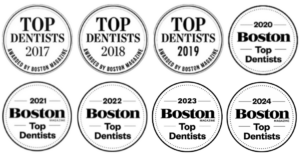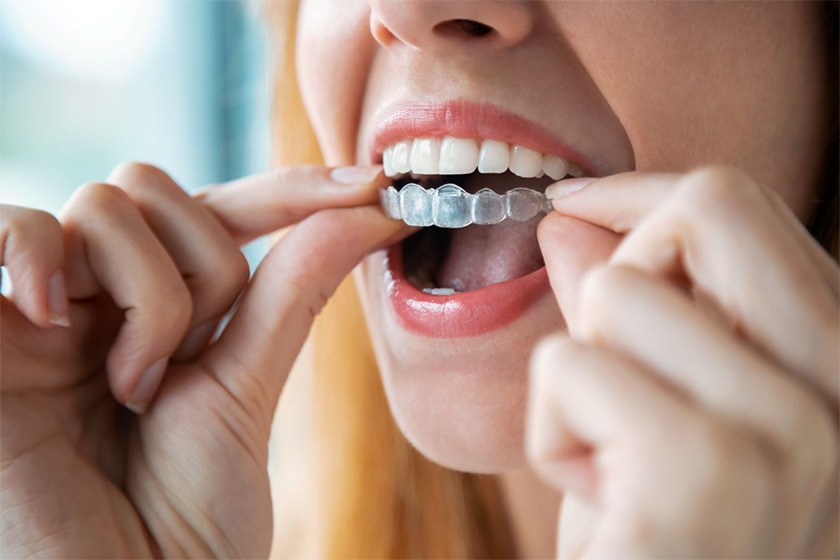A beautiful smile can significantly boost one’s confidence and self-esteem. People often aspire to have perfect teeth to enhance their appearance, but chipped, stained, misaligned, or irregularly shaped teeth can make this goal seem unattainable. However, dental veneers offer an effective solution to transform one’s smile dramatically. Lexington Smile Studio National Campaign has years of expertise in providing dental services, including dental veneers, to help patients achieve their desired smiles.
Dental veneers, also known as porcelain veneers or dental laminates, are wafer-thin shells made of porcelain or composite material that are custom-fitted to the front surface of a tooth. These veneers can help improve the aesthetics and structural integrity of teeth by correcting various oral concerns such as discoloration, gaps, alignment issues, and chips. When compared to other dental treatments like crowns or braces, veneers are less invasive, more comfortable, and provide immediate results.
This post aims to educate readers on dental veneers by covering their various types, the application process, and maintenance tips to ensure their longevity. Furthermore, it will provide insights into the advantages and potential limitations of dental veneers, assisting readers in making an informed decision about this cosmetic dental treatment.
Our team of experienced professionals is committed to providing personalized and high-quality dental care. We believe in the importance of patient education and strive to help clients understand their dental options. Stay tuned to read our comprehensive guide on dental veneers and decide whether they are a suitable solution for enhancing your unique smile.
Types of Dental Veneers
There are two primary materials utilized for dental veneers: porcelain and composite resin. Each material has its advantages and drawbacks, which should be considered when choosing the most suitable veneer type for your needs.
1. Porcelain Veneers
Porcelain veneers are considered the gold standard of dental veneers due to their natural appearance, durability, and stain resistance. These veneers are carefully crafted in a dental lab to match the exact shade and shape of your teeth, ensuring a seamless and aesthetically pleasing result. However, porcelain veneers are typically more expensive and require a minimal amount of tooth reduction for proper fitting.
2. Composite Veneers
Composite veneers, on the other hand, are made from tooth-colored resin materials that can be applied directly to the tooth surface during a single dental appointment. They are a more affordable alternative to porcelain veneers, offering similar benefits regarding aesthetics and function. Composite veneers do have a shorter lifespan compared to their porcelain counterparts and may require more frequent repairs and replacements due to eventual staining or chipping.
The Dental Veneer Process
If you’re considering dental veneers, it’s essential to understand the multi-step process involved to achieve your ideal smile.
1. Consultation and Treatment Planning
The first step in getting dental veneers is scheduling a consultation with a qualified dentist, such as the professionals at Lexington Smile Studio National Campaign. During the consultation, your dentist will evaluate your oral health, discuss your aesthetic goals and expectations, and determine the suitability of veneers for your specific needs. X-rays and dental impressions may be taken to facilitate the treatment planning process.
2. Tooth Preparation
To make room for the veneer, your dentist will remove a small portion of the tooth’s enamel, typically around 0.5 millimeters. For porcelain veneers, an impression of the prepared tooth will be sent to a dental lab to create your custom veneer, a process that may take one to two weeks. In the meantime, your dentist may place temporary veneers to protect the exposed teeth.
3. Veneer Bonding
Once your custom veneers are ready, your dentist will clean and etch the tooth surface to ensure a strong bond. The veneers will then be carefully positioned and cemented onto the teeth using a specialized dental adhesive. A curing light will be applied to harden the adhesive quickly, and any excess cement will be removed. Finally, the dentist will polish the veneers and make any necessary adjustments for a perfect fit and bite.
Maintenance Tips for Dental Veneers
Proper care and maintenance of dental veneers are essential to prolong their lifespan and ensure optimal appearance and function. Here are some tips to follow:
1. Maintain Good Oral Hygiene
Brush your teeth twice a day for at least two minutes, using fluoride toothpaste and a soft-bristled toothbrush to avoid scratching the veneers. Floss daily to remove any plaque buildup between teeth.
2. Regular Dental Checkups
Schedule regular dental checkups and cleanings at least twice a year. This allows your dentist to monitor the condition of your veneers and address any potential issues promptly.
3. Avoid Hard or Staining Foods
While veneers are resistant to stains, it’s advisable to avoid or limit the consumption of foods and beverages that can cause staining, such as coffee, tea, red wine, and berries. Additionally, avoid chewing on hard objects like ice, pen caps, or fingernails, which could chip or damage your veneers.
4. Use a Night Guard
If you suffer from bruxism (teeth grinding), consider investing in a custom-fit night guard to protect your veneers and prevent premature wear and tear.
Advantages and Limitations of Dental Veneers
Dental veneers are an excellent solution for those looking to achieve an attractive, natural-looking smile with long-lasting results. They offer various advantages such as durability, stain resistance, easy maintenance, and minimal tooth reduction compared to dental crowns. However, it’s important to consider the limitations of veneers, such as the potential for chipping or dislodgment, the necessity of replacement after several years, and their unsuitability for patients with severe tooth decay or gum disease.
Conclusion
Dental veneers provide a highly effective solution for individuals seeking to enhance their smile’s aesthetics and structural integrity. By understanding the different types of veneers, their application process, and proper maintenance, you can make an informed decision regarding their suitability for your dental needs.
At Lexington Smile Studio National Campaign, our experienced cosmetic dentists are committed to helping you achieve the radiant, confident smile you’ve always desired. We provide a full range of dental services for your entire family, including cosmetic dentistry, prosthodontics, implant dentistry, periodontics, and laser dentistry. Contact us today to schedule a consultation!






